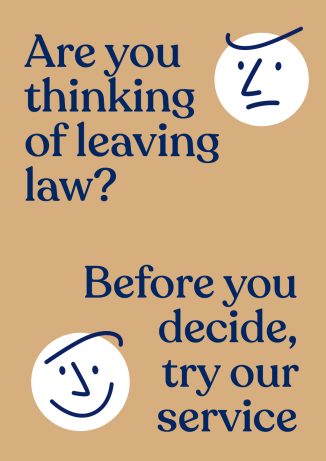Under pressure. Pushing down on you. Pushing down on me. Under pressure. Queen and David Bowie’s ‘Under Pressure’ pretty accurately and succinctly describes what a lot of legal industry culture can feel like. Under pressure. And billing pressure often hits the sharpest chord.
Chances are you are required to laboriously tally up every six minutes of your time if you’re a solicitor. And accumulate six, maybe even seven, hours of billable time per day. That’s six or seven hours of billable time. When you account for a couple of coffee breaks, a lunch break, keeping up to date with the latest judgments in your jurisdiction, pro bono work, file meetings with your team, mentoring, marketing opportunities, and your compulsory continuing legal education…it’s a lot. Oh, and don’t forget the time it takes to actually input your time into your timesheet. Attendance to peruse emailed instructions from you and prepare letter of advice, 3 units.
There are various ways billing pressure can really have you feeling like you’re treading water in choppy seas, sans lifejacket. They fall into two main categories. The first is when there’s always more work to do, even after you’ve met your arbitrary six or seven hours of billable time. It just doesn’t stop. The second is when there isn’t enough work around to accumulate your six or seven hours of billable work – you might be experiencing a quiet day, a quiet week or even a quiet month.
Just keep billing, just keep billing
This is the scenario where you can consistently meet the billable hours quota set by your firm because there is just so much work to do. A constant stream. It’s busy. But, you’re absolutely exhausted. You want to hit pause. But you can’t. The pressure mounts, and continues to mount. And then you go on a two-week holiday and take a long sigh of relief, before jumping back on that hamster wheel and wondering if you ever went on holiday at all.
If you’re astute and manage your time well, this scenario really penalises your efficiency. Instead of clocking off, tools down, after billing your required time – you just keep going. There is this perverse kind of ego inflation that seeps insidiously out of those timesheets. Why is our self-worth tied to how many hours we work, and not to having achieved something tangible and which is actually meaningful? Like perhaps delivering some not-so-good news to a client with calm, clarity and compassion – and your client saying a sincere thank you. How may units is that worth? What about a client referring their friend to you because of your expertise and diligence? Isn’t that the honeypot? Yeah sure, strong billables can sometimes (yes, sometimes) equate to a monetary bonus, but at what cost to your wellbeing? Isn’t it about time we did a cost benefit analysis on ourselves, rather than just on our client’s prospects of success?
I just can’t get enough
Rather scarily, scenario two is arguably worse than scenario one. Not billing enough – not by virtue of you taking your foot off the pedal, or scrolling mindlessly on social media throughout your work days, but, truly because of no fault of your own. There just might be a slow patch across your team, or within your firm. You might be waiting on instructions to come in from a client. You might not have been assigned work by the person who typically feeds work to you. This can all be really anxiety provoking. Am I going to get fired? I’m not bringing in any work myself. Can I be fired for that? What are my colleagues doing? Am I billing the least?
The Legal Services Board says you’re a fit and proper person, but you’re also human. And a human working in a world where money is time, and time is money. When there becomes a toggle between keeping your job and keeping your boss happy, or not meeting budget again, what do you do?
Though not always deliberately, unethical practices when work is slow or you’re experiencing a quieter time can creep in. When you’ve got heaps to put on your timesheet (heaps of billable time, that is), the whole ethical pause about what is going on the timesheet doesn’t really arise. You’re working as fast as you can to try and get everything done as quickly as possible. But, when you’re not billing that much, there is the time to ponder these things a little more carefully. For example, you just might not feel right about billing a client for a certain task, or it took you far longer than you think it should have taken. Or perhaps something just took longer today than it would have yesterday by virtue of the fact you weren’t as under the pump today. Again, what do you do?
Ruminating about all of the above can be pretty awful stuff to go through, particularly if you’re going through it alone. Opening the dialogue about these sorts of dilemmas and difficulties is a must.
I want to break free
Billing pressures, timesheets and a general reluctance to value actually valuable activities outside of billables which will help to grow, and retain talented lawyers, are things that probably won’t universally change anytime soon. What we can change and control though, is our relationship with these pressures (even if you’re working in a firm that thrives on the billables).
Let’s call it a perspective pivot. Spoiler alert – this is one that takes a bit of practice.
We need to stop defining “success” by a number on a timesheet, and redirect our focus and attention towards outcomes. We need to stop basing our value, our worth, and our accomplishments on the quantity of the work we do and how long we spend at a desk, day in, day out, to do it.When we’ve been conditioned to measure our worth based on a timesheet, it can be pretty tricky to break free of that mould. So again, in the words of Queen – I want to break free.
Firstly, not achieving budget for one day, for one week, or even for an entire month, does not equate to you being a bad lawyer. Billing six, seven or more hours of time on a timesheet every day for a year actually doesn’t equate to you being a good lawyer, either.
Read the preceding paragraph again.
What is your current relationship with your billables? Is your sense of self-worth intrinsically linked to the bottom line? It probably is, at least to some extent. What are some other metrics to measure your success? Get creative. What are your values? What matters to you?
We only seem to reflect on (and painstakingly try to remember because we’re mostly running on auto pilot) what kinds of matters we’ve worked on when we’re looking to impress in an interview for a new position. But, what if we incorporated this sort of reflection into our practices, and regularly? Reflecting on the things we’ve learned, things we have really enjoyed, something or someone that has added value to your practice, or something you may have added to the practice of another person.
Lawyering is so much more than billing. Next time you glance over at the timesheet to see one hour of billable time when you’ve been at your desk for four hours and that sense of dread, fear or panic looms – remember to check in with your value adds. Find things that give you your meaning, your purpose and encompass the ‘why’ about why you practice law.




